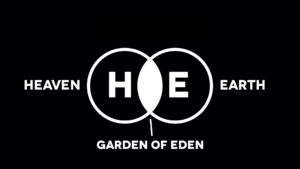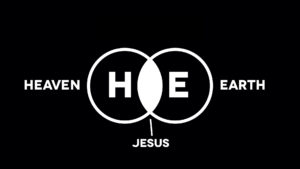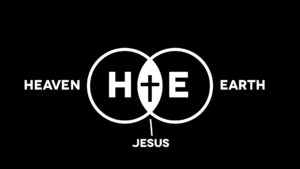Introduction
As we have looked at the grand story of work, God’s work in all creation, we see God’s design and vision for work (to go into the “wild and waste” and bring “order and beauty”), we see how humans ruined work (the environment of work is now made more difficult by sin), and the seed of hope for redemption (Genesis 3:15). We looked briefly at where all of this is headed in new creation (Revelation 21and 22). So what is our part in all of this? How do we see our work within this context and story?
Who Do We Work For?
Colossians 3:23-24 (ESV) Whatever you do, work heartily, as for the Lord and not for men, knowing that from the Lord you will receive the inheritance as your reward. You are serving the Lord Christ.
If you are a Christian, a disciple of the Lord Jesus, who do you work for? We may work within a particular company or industry or economy, and we may work under a boss or a board, but who do we actually work for? We work for the Lord Jesus. Yes, a boss may be the person who is employing us, but our allegiance is to Jesus first.
And what kind of work qualifies as working for Jesus? “Whatever you do.” If you are working for the Lord Jesus, serving at your job in whatever capacity, but as unto the Lord, then whatever your job, it is work that is considered working “as for the Lord.” There is no such thing as certain work glorifying Jesus or being more pleasing to Him than any other. If it is work for the Lord, there is no difference between a pastor, a barista, a teller, an Uber driver, a trash truck driver, a real estate agent, or an accountant, or a receptionist. If the person is serving the Lord Jesus in their work, then that job is pleasing to the Lord.
If you are serving the Lord Jesus, then what are you working for? A paycheck? Well, yes, you receive a paycheck which takes care of your basic needs. But is that all? Is the whole purpose of work just for monetary exchange? Paul says here that you are working for Jesus and that from Him, “you will receive the inheritance as your reward.”
“Inheritance” is a word Paul uses that he pulls from the storyline of Israel. God’s promise to Abraham was the end of Canaan. This Promise Land was the hope of Israel, the land that they were called to inhabit and be free to work in a way that honored God. Their land was their inheritance. Paul borrows this term to refer to the Christian’s inheritance in resurrection and new creation.
The Resurrection Changes Our Work
1 Corinthians 15:1-8 (ESV) Now I would remind you, brothers, of the gospel I preached to you, which you received, in which you stand, and by which you are being saved, if you hold fast to the word I preached to you— unless you believed in vain. For I delivered to you as of first importance what I also received: that Christ died for our sins in accordance with the Scriptures, that he was buried, that he was raised on the third day in accordance with the Scriptures, and that he appeared to Cephas, then to the twelve. Then he appeared to more than five hundred brothers at one time, most of whom are still alive, though some have fallen asleep. Then he appeared to James, then to all the apostles. Last of all, as to one untimely born, he appeared also to me.
1 Corinthians 15:12-13, 17-22 (ESV) Now if Christ is proclaimed as raised from the dead, how can some of you say that there is no resurrection of the dead? But if there is no resurrection of the dead, then not even Christ has been raised… And if Christ has not been raised, your faith is futile and you are still in your sins. Then those also who have fallen asleep in Christ have perished. If in Christ we have hope in this life only, we are of all people most to be pitied. But in fact Christ has been raised from the dead, the firstfruits of those who have fallen asleep. For as by a man came death, by a man has come also the resurrection of the dead. For as in Adam all die, so also in Christ shall all be made alive.


Because of man’s sin, the “age of sin and death” begins, subjecting the world to corruption and brokenness and darkness. But God cannot be fully pushed out of His creation. The storyline of the Bible climaxes with God reclaiming and redeeming His world in Christ Jesus. In Christ, God takes into Himself the sin and death at the cross. At the cross, Jesus absorbs all of the sin and evil of the serpent and takes it into death with Him. His resurrection means that sin and death do not have the final word. What the resurrection enables is a slow, partial moving forward of this redemption of God’s world and work in our lives. We are called to take more and more of God’s redemptive work into our lives, taking the wild wasteland’s of our hearts and lives and transforming them to goodness, and allow that work to flow into the totality of our lives, including our work.


If this is the story, what is the meaning of our work as Christians? Work is something that we do in the present age, but we are working for Jesus and working for an “inheritance.” Somehow, when I work in the present for Jesus, I am making a contribution into the world that is to come.
1 Corinthians 15:50-57 (ESV) I tell you this, brothers: flesh and blood cannot inherit the kingdom of God, nor does the perishable inherit the imperishable. Behold! I tell you a mystery. We shall not all sleep, but we shall all be changed, in a moment, in the twinkling of an eye, at the last trumpet. For the trumpet will sound, and the dead will be raised imperishable, and we shall be changed. For this perishable body must put on the imperishable, and this mortal body must put on immortality. When the perishable puts on the imperishable, and the mortal puts on immortality, then shall come to pass the saying that is written: “Death is swallowed up in victory.” “O death, where is your victory? O death, where is your sting?” The sting of death is sin, and the power of sin is the law. But thanks be to God, who gives us the victory through our Lord Jesus Christ.
The world compromised by sin and death cannot inherit the new world without a profound transformation. God does not scrap this world or our bodies, but transforms it all at a fundamental level, like Jesus’ resurrection. Jesus is the first fruits from the dead, the first human that sin and death do not have any sway. When I grab onto Him, what becomes true of Him becomes true of me. There is parts of me that need to die at the cross with Jesus and allow Him, but His grace, to transform us.
This means that your workplace, the kinds of contributions you make to the world, somehow moves God’s kingdom plan of transformation forward and lasts into new creation. What is our response to such an incredible possibility?
1 Corinthians 15:58 (ESV) Therefore, my beloved brothers, be steadfast, immovable, always abounding in the work of the Lord, knowing that in the Lord your labor is not in vain.
If I belong to Jesus, I do not belong to myself. Our work is to be an expression of our gratitude to the one who gave Himself for me. What kind of work qualifies as working for the Lord? All work can be pleasing to Him if it is done “for the Lord.”
There are two modes of working: one is just to go to work and go through the motions, working with the same mindset as everyone else. There is no future in this mode of working. The second is to recognize your work done in the Lord, that work is not in vain. That work will somehow make it into the world to come.
Conclusion
Revelation 21:1-5a (ESV) Then I saw a new heaven and a new earth, for the first heaven and the first earth had passed away, and the sea was no more. And I saw the holy city, new Jerusalem, coming down out of heaven from God, prepared as a bride adorned for her husband. And I heard a loud voice from the throne saying, “Behold, the dwelling place of God is with man. He will dwell with them, and they will be his people, and God himself will be with them as their God. He will wipe away every tear from their eyes, and death shall be no more, neither shall there be mourning, nor crying, nor pain anymore, for the former things have passed away.” And he who was seated on the throne said, “Behold, I am making all things new.”
Revelation 21:22-26 (ESV) And I saw no temple in the city, for its temple is the Lord God the Almighty and the Lamb. And the city has no need of sun or moon to shine on it, for the glory of God gives it light, and its lamp is the Lamb. By its light will the nations walk, and the kings of the earth will bring their glory into it, and its gates will never be shut by day—and there will be no night there. They will bring into it the glory and the honor of the nations.
The Scriptures end with all of creation and the nations bringing their work to the Lord as worship. New Creation work is to live and work for the honor and glory of the Lord. We anticipate that future by living it in the present, taking our everyday lives and work and see them as ways to glorify Jesus, the one who died and was raised to redeem me and restore me.
Galatians 2:20 (ESV) I have been crucified with Christ. It is no longer I who live, but Christ who lives in me. And the life I now live in the flesh I live by faith in the Son of God, who loved me and gave himself for me.